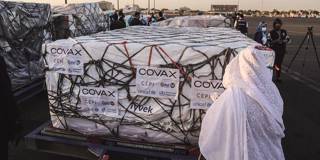Routine immunization programs not only help to prevent outbreaks of vaccine-preventable disease, but also serve as a critical first line of defense against new and emerging pathogens. That’s because vaccination drives in lower-income countries strengthen primary health care, improving disease surveillance in the process.
GENEVA – More than six months after the first COVID-19 vaccines became available, it should be clear to everyone that vaccines alone won’t stop this pandemic; we also need vaccinations. For many, any delay in vaccine access will prolong a crisis that already has immeasurably scarred lives, livelihoods, and economies.
The fact that even those at high risk from COVID-19 have yet to be fully protected demonstrates the complexity of the challenge of scaling up production and vaccinating billions of people. But the pandemic also highlights the perpetual, long-standing struggle with infectious disease facing hundreds of millions of people every day.
There is usually only a thin line stopping pathogens from spilling over into human populations. When it is crossed, a small, localized disease outbreak can all too easily escalate into a global crisis at breakneck speed. Given that vaccination is often the only way to prevent this, we urgently need to revise how we view global immunization programs.

GENEVA – More than six months after the first COVID-19 vaccines became available, it should be clear to everyone that vaccines alone won’t stop this pandemic; we also need vaccinations. For many, any delay in vaccine access will prolong a crisis that already has immeasurably scarred lives, livelihoods, and economies.
The fact that even those at high risk from COVID-19 have yet to be fully protected demonstrates the complexity of the challenge of scaling up production and vaccinating billions of people. But the pandemic also highlights the perpetual, long-standing struggle with infectious disease facing hundreds of millions of people every day.
There is usually only a thin line stopping pathogens from spilling over into human populations. When it is crossed, a small, localized disease outbreak can all too easily escalate into a global crisis at breakneck speed. Given that vaccination is often the only way to prevent this, we urgently need to revise how we view global immunization programs.